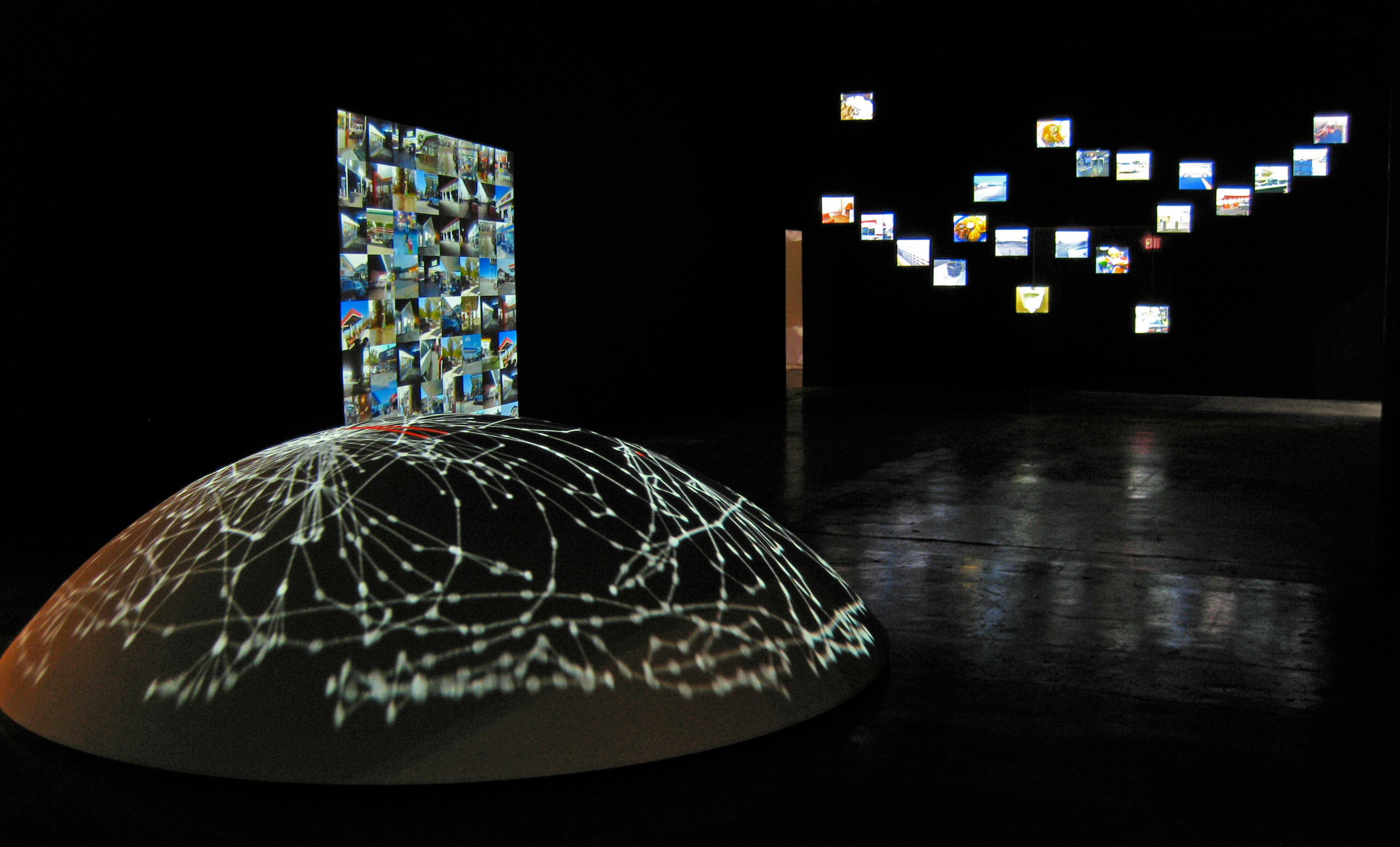Hasan Elahi began documenting his entire life in photos 14 years ago — long before it was normalized by social media.
But he wasn’t doing it to attract Instagram followers; he did it to avoid FBI suspicion.
“When your country, your government basically accuses you of being a terrorist, that’s a little off-putting,” said Elahi, an art professor at the University of Maryland and the former director of the Design | Cultures + Creativity program in the Honors College.
Ultimately, capturing these photos did more for Elahi — who is of Bangladeshi descent and was once under investigation by the FBI because of a mistaken tip identifying him as a terrorist — than keep him out of trouble with the government.
On April 5, Elahi received a Guggenheim Fellowship, one of the most prestigious awards an artist can earn.
The John Simon Guggenheim Memorial Foundation awarded 178 scholars, artists and scientists out of nearly 3,000 applicants from the United States and Canada this year, according to a news release. Carla Peterson, an emeritus professor of English at this university, was also recognized.
Elahi said he had lost count of the number of times he had applied, so when he received another email from the foundation after his Monday night class, he assumed it was another rejection. But when he opened it, he realized it looked different from the emails he’d been getting for years.
William Richardson, the chairman of the art department, said he wasn’t surprised by this kind of recognition for Elahi.
“There are artists and scholars whose work is considered sort of field-defining, and [Elahi’s] work in privacy, surveillance and of government intervention into private life is, in my estimation, field-defining,” he said.
In a world of post-9/11 paranoia, authorities found it easy to accuse someone with Bangladeshi heritage of committing terrorist acts, Richardson said. The FBI began requiring Elahi to give them updates on his work and travel over a span of six months after the couple Elahi rented a storage facility from suspected him of illegal activity because of his name and for emptying a storage unit on Sept. 11, 2001.
Elahi decided that if the FBI knew everything about him, he would make their information irrelevant by putting his entire life on the Internet for everyone to see. His project is still going today on his website, trackingtransience.net.
“When I first started doing this, people thought I was crazy. ‘Why would you want to photograph everything? … Why do you want to tell people what you’re doing? Why do I need to see your food?’ It’s kind of funny — now you look at Instagram and it’s basically not that drastically different,” Elahi said, laughing.
Yet the public doesn’t know that much about him, he said.
“I live this weirdly and surprisingly anonymous and private life,” Elahi said.
By putting so much information out there, he said, people can’t tell what’s valuable and what isn’t, so anyone who wants information on him, including the FBI, would have to dig through everything he’s publicized.
“One thing that I really like about his website is that it doesn’t preach; it doesn’t prosthelytize; it doesn’t explain,” Richardson said. “It just presents this incredible photographic record of the food he’s eaten, every urinal he’s peed in. He’s completely transparent as to where he is.”
The number of photos Elahi uploads depends on the day. Working in the same office space every day, he doesn’t upload the same photos every day — only when he makes what he considers a significant change in location.
If he goes from the kitchen to the bedroom, Elahi explained, you’ll see the same house image, but if he goes from house to grocery store, he’ll upload a new image from the grocery store.
Elahi calls this university a “phenomenal school” and came here to help expand the Design | Cultures + Creativity program. The program aims to apply humanistic and artistic ideas to interdisciplinary digital work, said Bonnie Thornton Dill, arts and humanities college dean.
The college sees Elahi “as a leading scholar and creative artist,” Dill said, “someone whom we are eager to support and promote and who in turn gives back to the college and students in a number of important ways.”
Elahi said he enjoys being at this university and is amused by its proximity to many government headquarters.
“If you triangulate the FBI headquarters, the CIA headquarters and the NSA headquarters, they practically end up on our campus,” Elahi said. “All these organizations can watch me at the same time, so I’m just closer to everyone. I’m just helping out, doing my civic duty … just being close to all of them,” he joked.
CORRECTION: Due to an editing error, a previous version of this story identified Hasan Elahi as director of the Design | Cultures + Creativity program in the Honors College. He is the former director of the program. The article has been updated.



